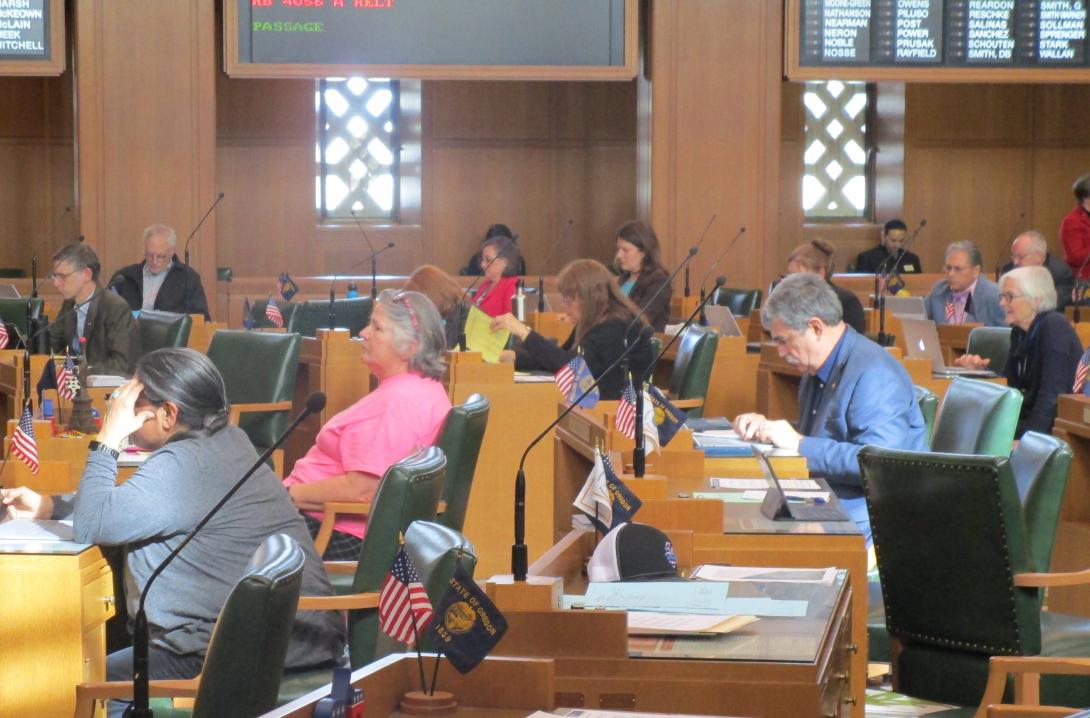
Oregon may have to exit a federal project that has expanded access to behavioral mental health services in mostly rural communities if the Republican walkout continues through the rest of the session.
The pilot program has been offered through a dozen Oregon clinics from Burns to Klamath Falls since it started in 2017, giving participants an enhanced Medicaid reimbursement rate to get people access to care sooner. The certified community behavioral health clinic program also provides patients access to primary care and treatment for substance abuse disorders, coordinating all their medical needs. Currently, Oregon is one of only eight states in the program.
The program has saved money elsewhere in the system and been effective for patients, participants say. For example, in Klamath Basin Behavioral Health, a person can walk into the clinic without an appointment and see someone the same day. The Klamath County provider also dispatches mobile crisis teams to emergencies, increasing diversions that help people get treatment instead of jail. The provider has sent fewer jail inmates facing criminal charges to the Oregon State Hospital for court-ordered treatment, saving an estimated $1.7 million a year in costs at the state-funded hospital compared to 2016.
The program needs legislative approval to continue beyond March 8, when the session ends. Lawmakers must approve a $15.3 million request from the state general fund for the rest of the two-year budget cycle, which ends June 30, 2021. The $15.3 million would generate another $62.9 million in federal matching Medicaid funding that enables the clinics to hire more staff and expand programs to better serve patients.
The Joint Ways and Means Committee sent the funding request to the Senate on Thursday, the last stop before a vote on the floor. Democratic lawmakers are looking for ways to pressure Republican legislators to end their protest over cap-and-trade before the session ends. The House Rules Committee voted Thursday to issue civil subpoenas to absent House Republican legislators that order them to appear before the committee on March 5.
Sen. Arnie Roblan, D-Coos Bay, and chair of the Senate Committee on Mental Health, said the committee has done all it can for the much-needed program.
“It was very informative for me to visit the program in Burns, Oregon and see anecdotally how well this is working for some of our rural communities,” Roblan, also a member of the Joint Ways and Means Committee, told the panel.
For now, community mental health advocates and providers are waiting to see what will come of the funding request. Advocates would like to see the model eventually become an option for any community mental health center, said Cherryl Ramirez, director of the Oregon Association of Community Mental Health Programs. To reach that point, Oregon needs to continue the pilot.
“We’re very much hoping we can,” she said. “As you know, the bill has gone through as far as it can go.”
Stan Gilbert, chief executive officer of Klamath Basin Behavioral Health, said the program has allowed his organization to grow since April 2017, providing services around-the-clock to help people in crisis.
“Access has been expanded,” he said. “You don’t have to have an appointment. You don’t have to make an appointment and wait three weeks. You can just walk in the door and you can have somebody.”
Rapid treatment is key in behavioral health, he said.
“In our world, time to treatment is really important. When somebody decides they need help and they need it right now and you can’t deliver it in a timely fashion, they get discouraged and they walk away and they don’t engage,” Gilbert said.
Gilbert said continuing the pilot is key because it will grow the data showing trends and patterns that can be used to expand the program into the long-term future. He said that not getting the state funding approved would mean the immediate end of the program.
“It will be over,” he said. “We’ll have to dismantle everything we built since April of 2017.”
You can reach Ben Botkin at [email protected] or via Twitter @BenBotkin1.